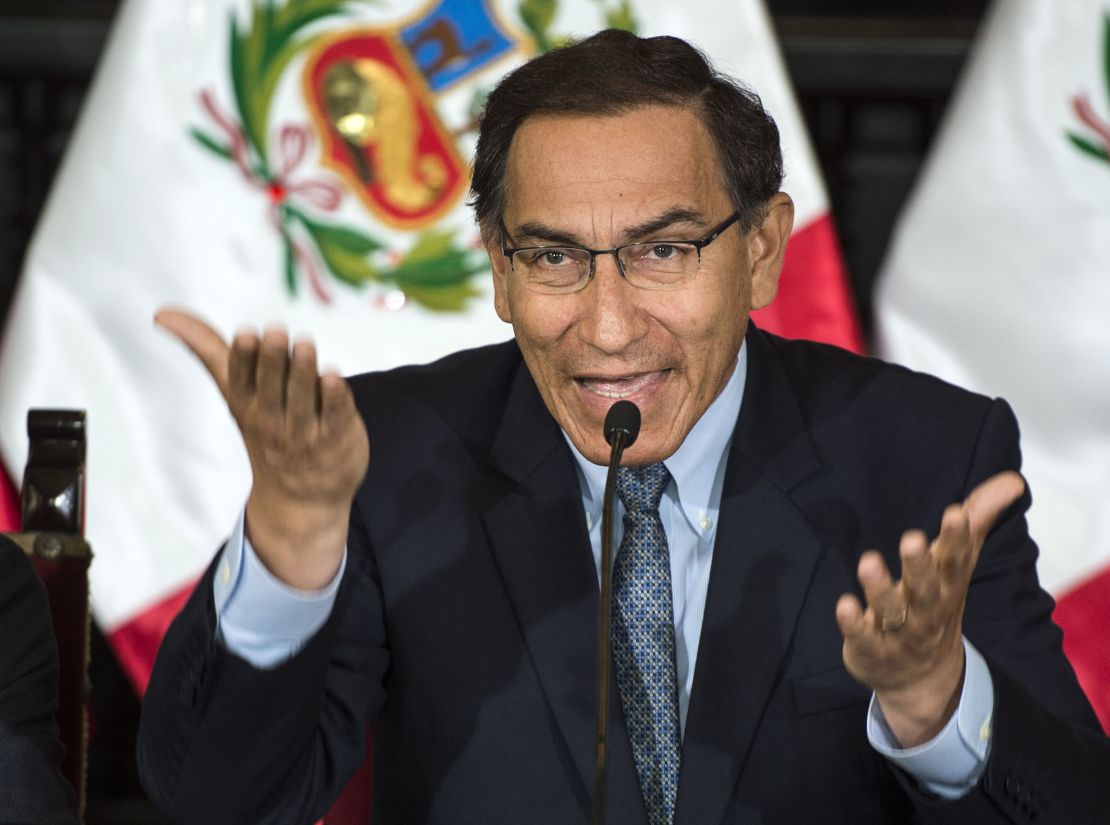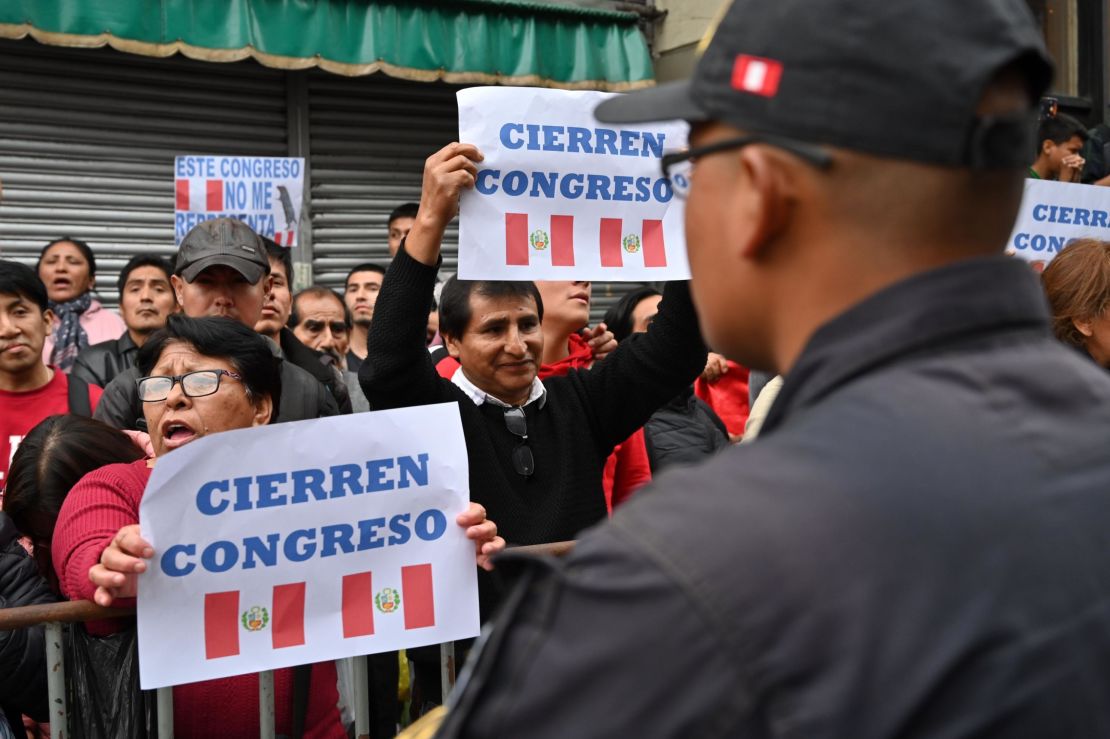Protestors gathered in Peru’s capital Lima on Tuesday as the country descended into political uncertainty following President Martin Vizcarra’s decision to dissolve congress, prompting rebel lawmakers to suspend him and appoint another leader.
In a televised message to the nation on Monday, Vizcarra announced the dissolution of the country’s congress and called for new parliamentary elections to be held within four months.
Congress president Pedro Olaechea responded by declaring the temporary removal of Vizcarra, alleging “moral inability” and accusing Vizcarra of “breaking the constitutional order.”
After Olaechea’s announcement, Vice-President Mercedes Araoz was sworn in as President on Monday night, leaving the South American country with a conflict between the legislative and the executive.

Monday’s political crisis came after the Peruvian congress named a new magistrate for the country’s top court, the constitutional tribunal.
Vizcarra had asked congress for a vote of confidence in order to modify the selection process for magistrates, saying: “Members of the constitutional tribunal are elected in a very hurried and non-transparent manner. We have proposed a vote of confidence to correct the election process.”
According to Reuters, proposed nominees for up to six of the tribunal’s seven members had come under scrutiny for links to criminally suspect judges.
The political drama is the latest chapter in Vizcarra’s year-long campaign to confront corruption, with right-wing lawmakers obstructing his efforts.
Protesters supporting Vizcarra took to the streets on Monday to express their frustration at congress.
The US Embassy in Peru said demonstrations throughout the country was a possibility on Tuesday and that it was monitoring the situation.
All branches of the Peruvian military and the Peruvian police have expressed their loyalty to Vizcarra. A joint announcement by the armed forces called Vizcarra the “Supreme chief of the Armed Forces and the National Police of Peru,” saying their “main mission is guaranteeing the independence, sovereignty and territorial integrity of the Republic.”
The Organization of American States said it was the responsibility of the constitutional court of Peru to “rule on the legality and legitimacy of the institutional decisions adopted” as well as the “differences that may exist in the interpretation of the constitution, depending on the actions and positions expressed to the court by political actors.”
The statement from the OAS General Secretariat added: “It is a constructive step that the elections have been called according to the constitutional deadlines and that the final decision rests with the Peruvian people, in whom lies the sovereignty of the nation.
“It is fair that the political polarization in the country will be resolved by the people at the polls.”

According to Jimena de la Quintana, CNN’s correspondent in Peru, the current political turmoil is a first for a country which has recently been mired in scandals.
Vizcarra took over Peru’s presidency in March of 2018 after former President Pedro Pablo Kuczynski resigned amid accusations of receiving more than $4 million from the Brazilian firm Odebrecht.
Earlier this year, former Peruvian president Alan Garcia died from a self-inflicted gunshot wound to the head as police were preparing to arrest him, while in July, another ex-president Alejandro Toledo was arrested in California on an extradition order.
Flora Charner, Natalie Gallon and Bethlehem Feleke contributed to this report.
